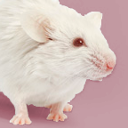Wolf-Hirschhorn syndrome candidate 1 (human) [Source:MGI Symbol;Acc:MGI:1276574]
5830445G22Rik, 9430010A17Rik, AW555663, C130020C13Rik, D030027O06Rik, D930023B08Rik, Kiaa1090, MMSET, NSD2, Nsd2, Whsc1l, mKIAA1090
Chromosome 5: 30,585,266-30,663,902 forward strand.
This transcript has 23 exons, is annotated with 74 domains and features and maps to 459 oligo probes.
This transcript is a product of gene MGP_FVBNJ_G0029228.1 Show transcript tableHide transcript table

